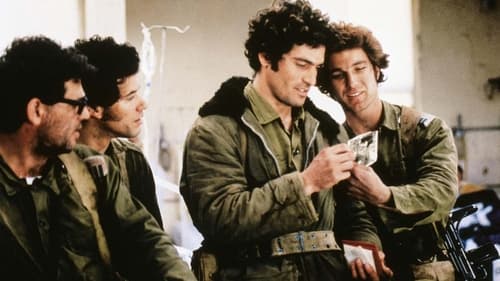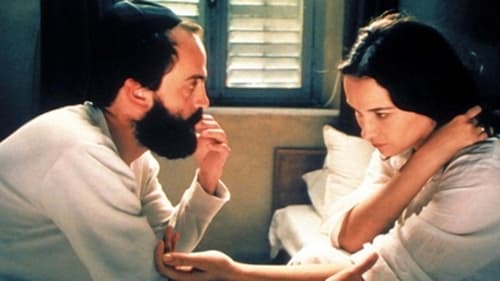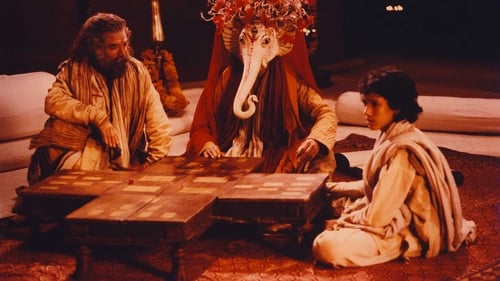
Producer
The film takes place in 1973 during the Yom Kippur War in which Egypt and Syria launched attacks in Sinai and the Golan Heights. The story is told from the perspective of Israeli soldiers. We are led by Weinraub and his friend Ruso on a day that begins with quiet city streets, but ends with death, destruction and devastation of both body and mind. Various scenes are awash in the surreal, as Weinraub's head hangs out over a rescue helicopter's open door, watching with tranquil desperation as the earth passes beneath, the overpowering whir of the blades creating a hypnotic state. It is not a traditional blood, guts and glory film. There are no men in battle, only the rescue crew trying to pick up the broken pieces.

Producer
The year 2000 approaches in Jerusalem's Orthodox Mea Shearim quarter, where the women work, keep house, and have children so the men can study the Torah and the Talmud. Rivka is happily and passionately married to Meir, but they remain childless. The yeshiva's rabbi, who is Meir's father, wants Meir to divorce Rivka: "a barren woman is no woman." Rivka's sister, Malka, is in love with Yakov, a Jew shunned by the yeshiva as too secular. The rabbi arranges Malka's marriage to Yossef, whose agitation when fulfilling religious duties approaches the grotesque. Can the sisters sort out their hearts' desires within this patriarchal world? If not, have they any other options?

Producer
A series of seemingly unconnected events and 50 important speaking parts make this film a jigsaw puzzle to be solved by the viewer. Martin and Claire were separated in childhood, and are brought together by a series of coincidences. A tragic car crash is central to the story, but seemingly unimportant events can hold great significance. Through a montage of different film stock and techniques director Diane Bertrand creates pieces of a puzzle, from which the viewer has to piece together a story. That's the premise of the film, and it is solvable. You just have to work a bit...

Producer
One of the great masterpieces of world literature comes to vivid life in an elaborate production from acclaimed theater and film innovator Peter Brook. This collection of ancient Sanskrit stories (composed into the longest book ever written) comprises a series of enlightened fables at the heart of countless beliefs, legends, and teachings; indeed, its very title means "the great story of mankind." Brook and writer Jean-Claude Carriere worked for eight years to develop this epic concerning two sides of a royal family, the Pandavas and the Kauravas, whose struggle leads to a fascinating voyage of emotions, passion and vision of glory. Briefly, the Mahabharata is a tale of two rival sets of brothers, cousins to eachother, each born into royalty and with divinely guided paths in life. The result, however, is a great war, death, destruction - a vast epic.



